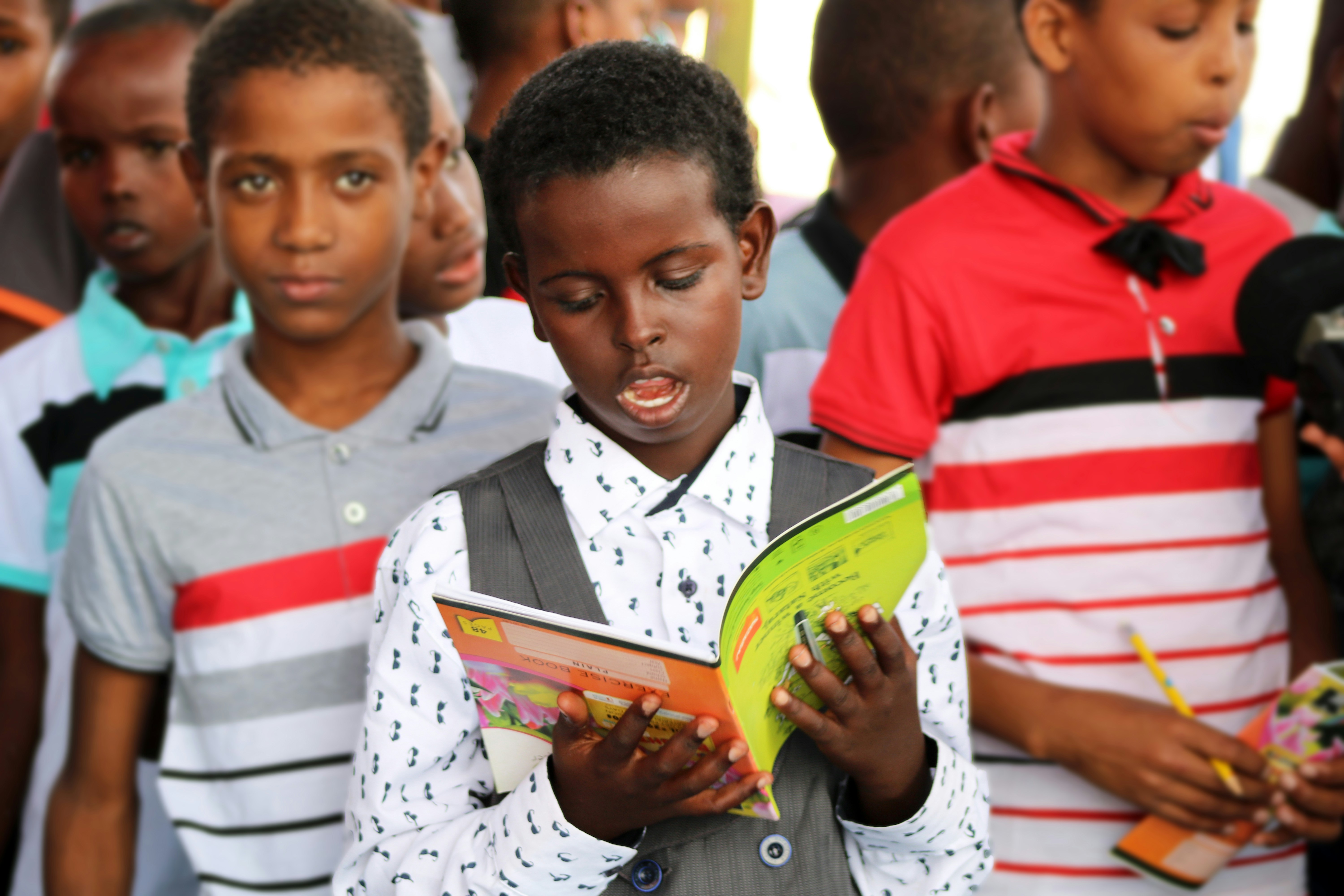In “The Impact of Parenting Styles on Child Development,” you will explore how different parenting styles can influence the growth and development of children. This article delves into the various parenting styles and provides an insightful analysis of their effects on the emotional, social, and cognitive development of children. Gain a deeper understanding of parenting styles and learn practical tips to foster positive development in your own child.
The Impact of Parenting Styles on Child Development
Introduction
Parenting styles play a crucial role in shaping a child’s development. The way parents interact with their children, set boundaries, and provide support significantly impacts various aspects of their growth and well-being. This article explores the four main parenting styles – authoritative, permissive, authoritarian, and uninvolved – and delves into the effects they have on emotional, cognitive, social, and behavioral development. Additionally, we will examine how parenting styles influence self-esteem, academic achievement, empathy, and cultural differences. Finally, we will explore the impact of parenting styles on adolescent development and the long-term effects they can have on individuals.
Authoritative Parenting Style
Considered the gold standard of parenting styles, authoritative parenting strikes a delicate balance between warmth and discipline. This style involves setting clear boundaries and expectations while nurturing a child’s independence and individuality. Parents who adopt the authoritative style are responsive to their child’s emotional needs, provide guidance, and encourage open communication. Research has shown that children raised by authoritative parents tend to have high self-esteem, good emotional regulation, and perform well academically. These children also develop strong social and problem-solving skills, as they feel secure in their parents’ love and support.
Permissive Parenting Style
In contrast to authoritative parenting, the permissive style is characterized by a lack of structure and few expectations. Parents who adopt this style tend to be indulgent, allowing their children to make decisions without providing much guidance or discipline. While children may perceive permissive parenting as lenient and enjoyable, its impact on their overall development can be detrimental. Without clear boundaries, children may struggle with self-control, have difficulty respecting authority figures, and exhibit impulsive behaviors. Additionally, they may struggle with forming healthy relationships and face challenges in achieving academic success due to the lack of structure and focus.
Authoritarian Parenting Style
Authoritarian parenting is defined by strict rules, high expectations, and limited flexibility. Parents who adopt this approach prioritize obedience, discipline, and conformity. While children raised in an authoritarian household may excel academically and exhibit self-discipline, they often lack self-esteem and struggle with decision-making skills. Research suggests that children raised under authoritarian parenting are more likely to become withdrawn, have lower social competence, and experience higher levels of anxiety and depression. The constant focus on obedience and punishment can hinder their emotional expression and overall well-being.
Uninvolved Parenting Style
The uninvolved parenting style is characterized by neglect and emotional unavailability. Parents who adopt this style show little interest or involvement in their child’s life, often due to personal challenges or mental health issues. Children raised with uninvolved parenting often experience a profound lack of emotional support, neglect of their basic needs, and limited guidance. Consequently, these children may struggle to develop a sense of self-worth and independence. They may have difficulty forming secure attachments and may exhibit behavioral issues such as aggression, social withdrawal, or academic underachievement.
Emotional Development
Parenting styles significantly impact a child’s emotional development. Children raised by authoritative parents tend to have high emotional intelligence, as they are encouraged to express their feelings and have their emotions validated. On the other hand, children with authoritarian or permissive parents may struggle with emotional regulation and expressing themselves appropriately. Uninvolved parenting can severely hinder emotional development, leading to difficulties in forming healthy relationships and coping with life’s challenges.
Cognitive Development
Parenting styles also affect a child’s cognitive development. Authoritative parenting fosters a stimulating environment by encouraging learning and exploration. These children tend to have strong problem-solving skills and demonstrate intellectual curiosity. However, authoritarian parenting, with its emphasis on obedience and conformity, may inhibit cognitive development as children may become overly reliant on rote memorization and lack critical thinking skills. Permissive parenting can also hinder cognitive development by not providing adequate structure and opportunities for educational growth.
Social Development
The social development of a child is greatly influenced by parenting styles. Authoritative parenting promotes healthy social skills, empathy, and cooperation with peers, as children feel secure in their relationships and are encouraged to develop positive social connections. Conversely, authoritarian parenting may hinder social development by limiting a child’s ability to express themselves and collaborate with others. Permissive parenting can lead to difficulties in establishing boundaries and respecting others’ rights, potentially impacting the child’s social relationships. Uninvolved parenting often results in children struggling to form secure attachments, which can lead to difficulties in developing trusting relationships and building meaningful connections.
Behavioral Development
Parenting styles also shape a child’s behavior. Authoritative parents set clear expectations and provide consistent discipline, which helps children develop self-control and make positive choices. In contrast, children raised in permissive households may lack discipline and demonstrate impulsive behaviors. Authoritarian parenting may lead to children who are overly compliant but exhibit aggression or rebellion when faced with external influences. Uninvolved parenting often results in children engaging in disruptive or destructive behaviors as a means of seeking attention or coping with emotions.
Self-esteem and Self-confidence
The impact of parenting styles on a child’s self-esteem and self-confidence cannot be overstated. Authoritative parenting, with its emphasis on support and nurturing, fosters a sense of worth, competence, and agency in children. These children grow to have healthy self-esteem and are more likely to take on challenges with confidence. In contrast, authoritarian and permissive parenting may lead to lower self-esteem, as children either constantly seek validation or lack guidance in developing a positive self-image. Uninvolved parenting significantly hinders self-esteem, as children often internalize the lack of attention or care as a reflection of their self-worth.
Academic Achievement
Parenting styles also influence a child’s academic achievement. Authoritative parenting provides a conducive environment for learning, as these parents place value on education, offer support, and provide structure. Children raised in authoritative households tend to excel academically, demonstrate good study habits, and have the motivation to succeed. Conversely, children raised in permissive households may face challenges in academic achievement due to the lack of structure and accountability. Authoritarian parenting may initially result in high academic performance driven by fear of punishment, but it often lacks intrinsic motivation or joy in learning. Uninvolved parenting detrimentally impacts academic achievement, as children lack the necessary support, guidance, and encouragement.
Empathy and Emotional Intelligence
Parenting styles significantly affect the development of empathy and emotional intelligence in children. Authoritative parenting promotes empathetic behavior by teaching children to understand and respond to the emotions of others. These children tend to be more emotionally perceptive, compassionate, and socially aware. On the other hand, authoritarian parenting, with its emphasis on obedience, may inhibit the development of empathy as children are more focused on rules rather than understanding others’ perspectives. Permissive parenting may lead to a lack of empathy due to the absence of boundaries and consequences, while uninvolved parenting often results in children struggling to recognize and relate to the emotions of others.
Parenting Styles and Cultural Differences
It is essential to consider that parenting styles may vary across different cultures due to societal norms and beliefs. Some cultures may value authoritarian parenting as a means of instilling discipline and respect, while others may prefer a more permissive or communal approach. It is crucial to understand the cultural context in which parenting styles are practiced to avoid making broad generalizations or dismissing alternative approaches. Cultural differences should be respected and appreciated, recognizing that different parenting styles can still promote positive child development if implemented with love, warmth, and consideration for the child’s needs.
Effects of Parenting Style on Adolescent Development
As children enter adolescence, the impact of parenting styles continues to shape their development. Authoritative parenting plays a vital role in supporting adolescents’ autonomy and decision-making, allowing them to explore their identity while maintaining healthy boundaries. These adolescents tend to have higher self-esteem, better emotional regulation, and exhibit responsible behavior. Conversely, adolescents raised in authoritarian households may struggle with adaptive skills, risk aversion, and face challenges in asserting their independence. Adolescents from permissive or uninvolved households may experience difficulties in establishing a clear sense of self, coping with peer pressure, and making sound choices.
Long-term Impacts of Parenting Styles
The influence of parenting styles extends beyond childhood and adolescence, impacting individuals into adulthood. Children raised by authoritative parents tend to develop strong problem-solving skills, healthy interpersonal relationships, and have a higher likelihood of achieving success in their personal and professional lives. Conversely, individuals raised with authoritarian, permissive, or uninvolved parenting may face challenges in forming healthy relationships, struggle with emotional regulation, and experience lower life satisfaction. However, it is essential to acknowledge that individuals have the capacity to overcome the potential negative impacts of their upbringing through personal growth, external support, and self-reflection.
Conclusion
Parenting styles have a profound impact on a child’s development across various domains. The authoritative style stands out as a balanced approach that fosters emotional intelligence, cognitive abilities, social competency, and positive self-esteem. In contrast, the permissive, authoritarian, and uninvolved styles can hinder a child’s holistic development, affecting their emotional well-being, social relationships, behavior, and academic achievement. Recognizing the importance of parental influence, it is essential for parents to reflect on their parenting style, adapt it as needed, and prioritize creating a nurturing, supportive, and structured environment to foster their child’s optimal growth and well-being.







